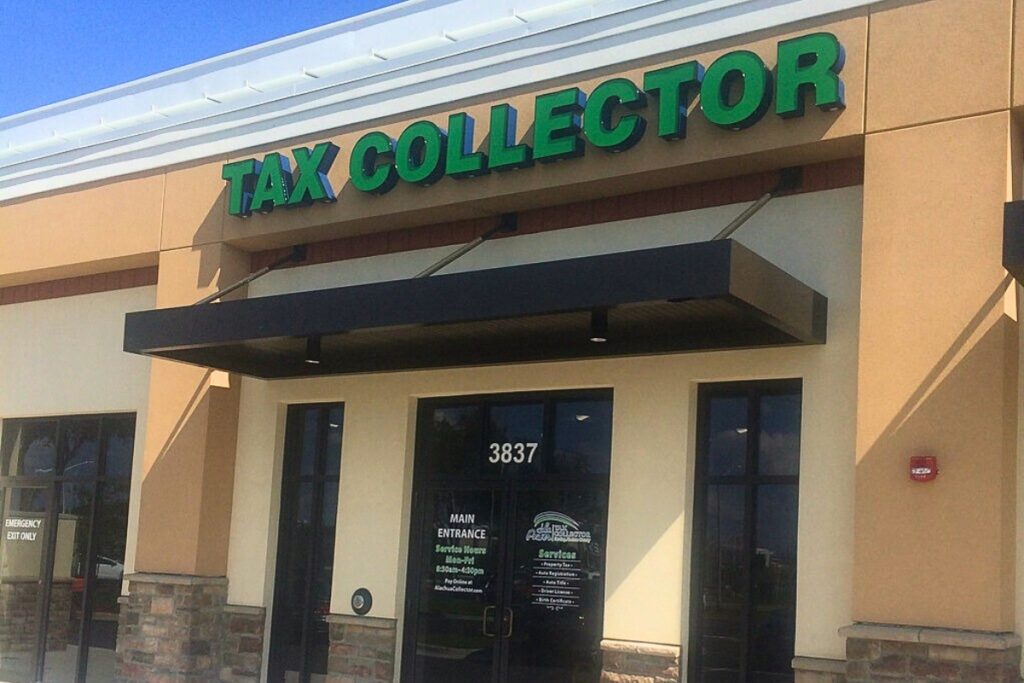
The Florida PACE Funding Agency (FPPA) is suing Alachua County Tax Collector John Power after Power announced his office would not place certain assessments on the tax roll.
The lawsuit, filed on Aug. 29, makes Power one of at least nine Florida tax collectors the agency is targeting with legal action. The FPFA sued Seminole and Leon counties’ tax collectors on the same day.
The issue stems from the property assessed clean energy (PACE) program, which the Florida Legislature first approved in 2010. State lawmakers authorized the FPFA to run a federal program that finances new roofs, windows, HVAC units and other home efficiency improvements, but critics say the program does not have adequate consumer protections, which led to counties withdrawing from participation.
The FPFA lawsuits started with Sarasota County in June, and Chief Deputy Tax Collector Jon Costabile said the Alachua County office had a feeling a lawsuit might come its way. He said Power’s office has a very similar position to the one taken by Sarasota County’s tax office.
Mainstreet reported in June on Power’s decision not to issue new assessments by the FPFA since the expiration of its agreement with Alachua County in 2021. On Tuesday, Costabile said 53 parcels currently have new assessments that the agency could ask to be placed on the tax roll.
The Alachua County Board of County Commissioners (BOCC) authorized its county attorney to file an intervention in the case along with any other actions needed to exert the county’s home rule authority. Without discussion, the BOCC unanimously approved the action at its budget meeting on Tuesday.

Costabile said the tax collector’s office has also retained outside counsel that has represented other tax collectors in the state. He said the BOCC has similar but slightly different interests in the case.
So far, the FPFA has sued tax collectors in Alachua, Bradford, Hillsborough, Leon, Volusia, Sarasota, Seminole, St. Lucie and Washington counties.
According to the Tampa Bay Times, a Sarasota judge sided against the local tax collector and with the FPFA. The ruling came in the middle of August.
In the Alachua County lawsuit, the FPFA declares that Power broke his duty as tax collector by refusing to place the agency’s collection requests on the tax roll.
“Under Florida Statutes, once the basic requirements for use of the Uniform Method of Collection are met, Tax Collector’s duty is purely ministerial, and the Tax Collector is without discretion to decline to collect the non-ad valorem assessments,” the FPFA says in the lawsuit.
The lawsuit requests a writ of mandamus, a court order requiring a public entity to fulfill an obligation required by law—in this case, for the tax collector to place any assessments sent by the agency on the tax roll.
The conflict with tax collectors stems from a larger conflict between the FPFA and Florida counties and different interpretations of a Leon County order from 2022.
In 2010, Florida became one of three states to approve residential PACE funding, which gives homeowners a financing alternative for home repairs. After signing up and getting the repairs, owners pay the cost through their annual taxes.
The way it is set up, the PACE provider could send the assessment to the local tax collector, who would place it on the tax roll, requiring yearly payments by the homeowner.
However, some Florida counties refused to set up agreements with the FPFA or other PACE providers, preventing access by the agency. Alachua County allowed access starting in 2016, but the BOCC decided to let the agreement expire on Aug. 13, 2021.
The county, and others across the nation, worried that citizens were signing up for a program that lacked sufficient consumer protections and without full knowledge of the potential consequences, like losing your home.
Last year, the Florida PACE Funding Agency obtained a bond validation order from a court in Leon County. With that order, the agency restarted operations in Alachua County and other counties, like Columbia, that never had interlocal agreements with the agency.
The FPFA views the bond validation order as authority to operate throughout the state without local county approval. Florida counties have interpreted the order differently, and Alachua County attorney Sylvia Torres said so in a May cease and desist letter to the agency.
“Please be advised that Alachua County disagrees with any such interpretation of that order and maintains that FPFA does not possess the ability to operate independent of the County’s regulation or cooperation,” Torres wrote.
Several Florida tax collectors issued statements that they would not collect the assessments sent by PACE agencies that lacked a local county agreement. The FPFA is suing, calling the tax collectors’ stance unlawful.
Meanwhile, several counties have also sued the Florida PACE Funding Agency for continuing to operate within their borders without approval.
Torres told the BOCC that the issue will return as a priority to bring up with the Legislature in the next term, or it could end up before the Florida Supreme Court.


This FPFA group seems like a mob enforced protection racket that is attempting to force people into a pyramid scheme whether they want to or not.
When New York and Boston supposedly got rid of much of their organized crime, did they all just move to Washington D.C.? How many of the mob turned state’s evidence and got in the witsec program? Were all their new identities provided jobs WITHIN the government?
Government to vindictive to comment!